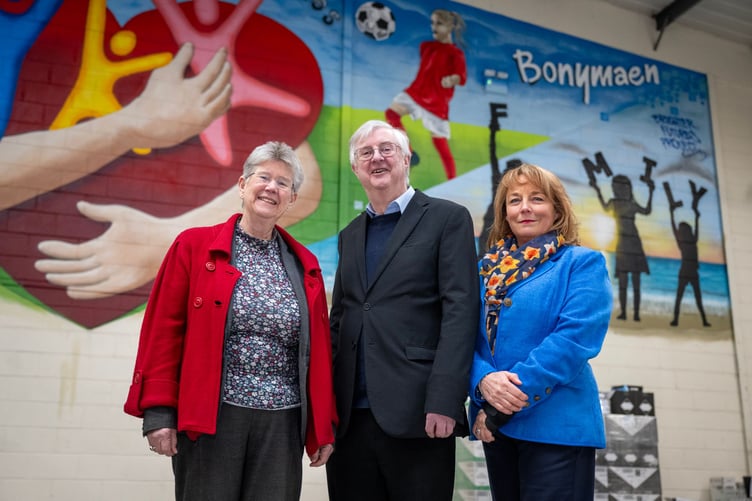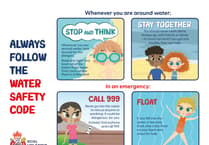“Tackling child poverty is at the heart of everything we do,” Minister for Social Justice and Chief Whip Jane Hutt has vowed.
The Welsh Government’s new Child Poverty Strategy aims to tackle the harmful effects of living in poverty and improve opportunities for children living in poverty.
Speaking as she launched the new strategy, Ms Hutt said the Welsh Government would use all its existing powers and levers as it works with other organisations to make child poverty a priority in decision making at all levels of government in Wales over the coming decade.
More than 3,000 children, young people, families and organisations have helped to create the Child Poverty Strategy, which is underpinned by a commitment to children’s rights in addressing the scourge of child poverty.
The strategy has five long-term objectives:
- To reduce costs and maximise the incomes of families.
- To create pathways out of poverty so children and young people and their families have opportunities to realise their potential.
- To support child and family wellbeing and make sure that work across the Welsh Government delivers for children living in poverty
- To ensure children, young people and their families are treated with dignity and respect by the people and services who interact with and support them and to challenge the stigma of poverty.
- To ensure that effective cross-government working at the national level enables strong collaboration at the regional and local level.
First Minister Mark Drakeford and the Minister for Social Justice Jane Hutt have visited two unique projects which show the Child Poverty Strategy in action.
Last week they visited Wales’ first ‘multibank’ project – Cwtch Mawr – which has been set up in Swansea.
The multibank model sees businesses providing surplus goods, including cleaning products, reusable household goods, toiletries and furnishings, to people who are unable to afford them, for free.
These are distributed to those in need thanks to a network of referral partners which include social workers, health professional, teachers and charities.
The Cwtch Mawr project demonstrates partnership working and is a direct response to key long-term objectives in the Child Poverty Strategy to work collaboratively with national, regional and local partners.
Minister for Social Justice and Chief Whip Jane Hutt also visited Blaenavon Resource Centre in Torfaen yesterday (January 22), with Co-operation Agreement Designated Member Sian Gwenllian, to launch the Welsh Benefits Charter.
Blaenavon Resource Centre provides direct support and a referrals service to people struggling in the cost-of-living crisis, providing advice and support to help people in greatest need to pay for their energy, food and essential items for the home.
The Welsh Benefits Charter is one of the commitments in the Child Poverty Strategy. It has been adopted by all 22 Welsh local authorities and confirms the collective commitment to improve access to financial support for people across Wales.
It outlines the underlying principles to develop a compassionate Welsh benefits system, which will ensure people are able to easily access the benefits they are entitled to, helping to put money in their pockets, maximise their income and help tackle child poverty.
First Minister Mark Drakeford said: “We are determined to tackle the harmful effects of poverty and improve opportunities for children.
“Today we are setting out how we can tackle the most pressing challenges, using all the powers we have, especially our ability to bring organisations and partners together to harness their combined ambition and drive.
“The key tax and welfare powers rest with UK Government. We need them to work with us to achieve this ambition of giving every child in Wales every advantage. Tackling child poverty doesn’t just benefit children – it supports every one of us.”
Minister for Social Justice and Chief Whip Jane Hutt said: “Tackling child poverty and working with others to achieve this is at the heart of everything we do as a government at all levels in Wales.
“Through this strategy we are ensuring that child poverty is a priority in cross-government decision making.
“Cwtch Mawr and the Welsh Benefits Charter are prime examples of partnership working in action that will help us achieve our objectives.
“It is only through strong cross-government working and collaboration at regional and local levels, as well as supporting people to help them maximise their income and find pathways out of poverty, that we can work together to deliver on the rights of all children and young people of Wales.”
The Child Poverty Strategy is made up of five key objectives and with five priorities for focused action to deliver against these objectives and a further 19 commitments. They aim to shape government policy now and in the future.





Comments
This article has no comments yet. Be the first to leave a comment.